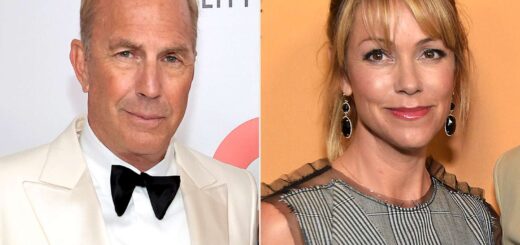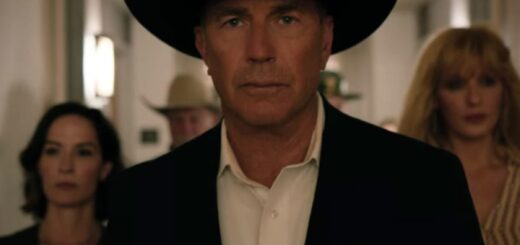“Kevin Costner: The Final Frontier of Cornball American Cinema”?
If you’re an animal in a movie directed by Kevin Costner, you might want to brace yourself: history suggests you may not survive long. In his films, loyal creatures—a horse, a dog, a wolf—often form the closest bonds with solitary heroes, only to meet tragic ends at the hands of villains. This pattern speaks to Costner’s filmmaking ethos: he isn’t afraid to tug at the heartstrings, emphasizing a stark moral divide between good and evil. For him, animals embody the wild, free spirit that reflects the best of humanity, and their deaths serve to underscore the gravity of the stakes.
From his early fame, Costner has embraced an earnest, everyman persona. While he exudes charm in films like “Bull Durham,” his roles in “The Untouchables,” “Field of Dreams,” and “JFK” reveal a commitment to decency and duty, often portraying characters who are misunderstood but unwavering in their missions. This raises a question: does this make his characters heroic or merely corny? Timeless or out of touch? Costner embodies this tension, leaving audiences to grapple with the implications of his image.
As I revisited Costner’s directorial works—“Dances With Wolves,” “The Postman,” and “Open Range”—I saw a consistent theme. Each Western reflects his journey as an artist, with expansive landscapes serving as a backdrop for introspection. The orchestral scores amplify the feeling that these ordinary men are destined for extraordinary deeds, embodying a deep-seated moral duty.
“Dances With Wolves,” his crowning achievement, remains a significant cultural touchstone. Winning seven Oscars, including Best Picture and Best Director, it tells the story of John J. Dunbar, a Union soldier who finds renewal among the Sioux people. While it faced criticism for its liberal messages—Pauline Kael’s quip about “feathers in his hair” is a classic—Costner’s portrayal feels sincere. The film is notable for its respectful representation of Indigenous culture, earning a place in the hearts of many, including the recent filmmakers who cite it as formative.
In stark contrast, “The Postman” attempted to channel Frank Capra’s spirit but faltered in execution. Set in a post-apocalyptic landscape, Costner’s character impersonates a postman to inspire hope. However, the film’s overreaching ambition and a heavy-handed message about restoring American ideals fell flat, revealing the potential pitfalls of Costner’s earnestness.
After the backlash from “The Postman,” Costner returned with “Open Range,” a more understated film that marked a course correction. It features characters striving for a sense of decency in a morally ambiguous world. The death of a beloved dog signals the arrival of true evil, highlighting Costner’s consistent thematic preoccupation with good versus bad.
Costner’s fascination with Westerns lies in their inherent moral codes. Even when set in a dystopian future, as in “The Postman,” his narratives celebrate the rugged individualism and ethical clarity of the genre. He presents a sensitive version of masculinity, portraying heroes who embody both strength and vulnerability.
Throughout his films, Costner’s gentleness prevails. Even in the chaotic world of “The Postman,” there is a yearning for a simpler, better America. “Open Range” similarly explores themes of aging and redemption, without the somber aftertaste of regret found in many other Westerns.
Yet, while Costner’s films can be sentimental and at times cringe-worthy, they also resonate with sincerity. His genuine humility shines through, particularly in “Dances With Wolves,” where he respectfully represents the Indigenous experience without condescension. His willingness to embrace corniness becomes a strength, allowing him to connect with audiences on an emotional level.
As I await “Horizon,” Costner’s upcoming project, I remain hopeful. Regardless of its reception, there’s no doubt that he invests himself wholly into his work. His ability to evoke a sense of wonder and nostalgia, appealing to our better nature, is a testament to his unique voice in cinema. In a world that often feels cynical, Costner reminds us of the possibility of goodness—and that, sometimes, is worth believing in.


